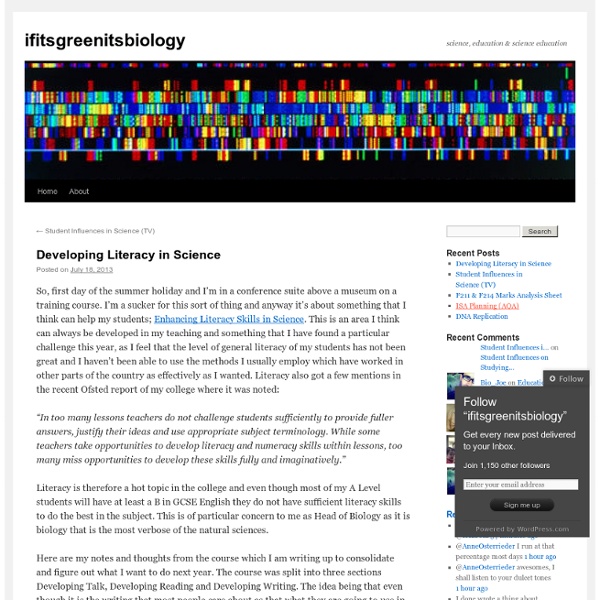Protagonize: Collaborative creative writing community - fiction, poetry, stories, and great reading!
Curiosity killed by class?
When you become a father you get used to being asked endless questions about the intricacies of our complex world. The road is paved with unending questions. Why does this…? How does that…? I have been recently reading an excellent book, ‘Trusting What You’re Told: How a Children Learn from Others‘, by Paul Harris of Harvard University. The research Paul Harris links to shows that children from working class families don’t ask nearly as many questions as children from middle class families. Paul Harris initially links to a study undertaken by Dorothea McCarthy, in Minneapolis in 1930: “Dorothea McCarthy observed 140 children in Minneapolis ranging in age from 18 to 54 months. Harris accounts for the crucial variable of confidence in this study, but he then links to the more modern research of Tizard and Hughes, whose British research in 1984 produced much more nuanced results. As a father and a teacher I am keeping an open ear to the ‘why‘ questions that come my way.
Text Messaging and Grammatical Development
This longitudinal study is investigating whether the grammatical violations used in text messaging have a detrimental impact on grammatical development and other related literacy and language skills over the course of a year. Researchers from Coventry University collected text messages from three groups of children and young people (83 primary school children, 78 secondary school pupils and 49 undergraduates), who were then asked to complete a series of standardized assessments to measure their IQ, spelling ability, and understanding of written and spoken grammar. This process was repeated a year later to show any change in the relationship between texting and grammatical development over time. Although most participants in all three groups violated grammatical convention in their text messages, researchers found no evidence that this affected their understanding of written or spoken grammar at either point in time.
Resource: Online Metro Map Creator
One of our recent, most popular and inspirational responses online has been to us promoting a modified tweet via @JamieClark85: Which was inspired by this fantastic Classroom Display created by @LauraLolder: Creating your own version of a metro map is actually quite easy, and a great activity to support pupils learning about different aspects within subjects, or even as connection maps for revision. Click image to view larger version Crudely, we created a map, using the online tool by Beno.org.uk (click here to view in a new window). Working on a PC/Mac (site not compatible with tablets), it is simple to create your own routes, adding stations and connections as you work. Teachers are starting to share how they have used this resource to support students in their subjects. [<a href="//storify.com/ukedchat/metromaps-in-education" target="_blank">View the story "MetroMaps in Education" on Storify</a>]
Note-taking Effectiveness in the Digital Classroom Infographic
Teacher Infographics Note-taking is part-and-parcel to the academic learning experience. Often during lecture, but also experiments, interviews, and field research, understanding what’s important and recording it for future reference is central to the learning process. Today, 40% of students prefer a mix of physical and digital notes. In the digital classroom then, the primary shift parallels blended learning: a mix of physical and electronic information that serves as a compromise between “old” and “new” learning. Recording pens, tablets, laptops, audio software, and social media make recording, reviewing, sharing, and storing these notes different than it was even 10 years ago. Via: www.coursehero.com Embed This Education Infographic on your Site or Blog!
How Texting Is Changing Your Grammar
The Current State Of Technology In K-12 5.33K Views 0 Likes What is the next device most students will soon purchase? How many schools have a digital strategy? Find out in the current state of technology in K-12. 5 Reasons We Use Social Media 10.76K Views 0 Likes There are many reasons we use social media.
Argos Helpers tweet epic reply to Immy 'BADMAN' Bugti about PS4
Argos won the respect of thousands of Twitter users and a customer called ‘badman’ with its epic reply to a request about PlayStation 4 accessories. Immy ‘BADMAN’ Bugti got in touch with Argos Helpers, the official customer service team for the British retailer, asking when it was getting some more ‘ps4 tings’ in Moss Side, Manchester. @BadManBugti Safe badman, we gettin sum more PS4 tings in wivin da next week y'get me. Soz bout da attitude, probz avin a bad day yo. LD— Argos Helpers (@ArgosHelpers) March 08, 2014 @ArgosHelpers respect. Bugti, who describes himself as a ‘gangsta from manni’ also complained about a ‘wasteman with bare attitude’ who he spoke to in-store. The reply from Argos, which began ‘safe badman’, has been retweeted more than 6,000 times. Many users commended Argos’s customer service, while a pleased ‘badman’ later tweeted: ‘Argos are safe.’
writing prompts
johntomsett | "There is nothing either good or bad, but thinking makes it so."



